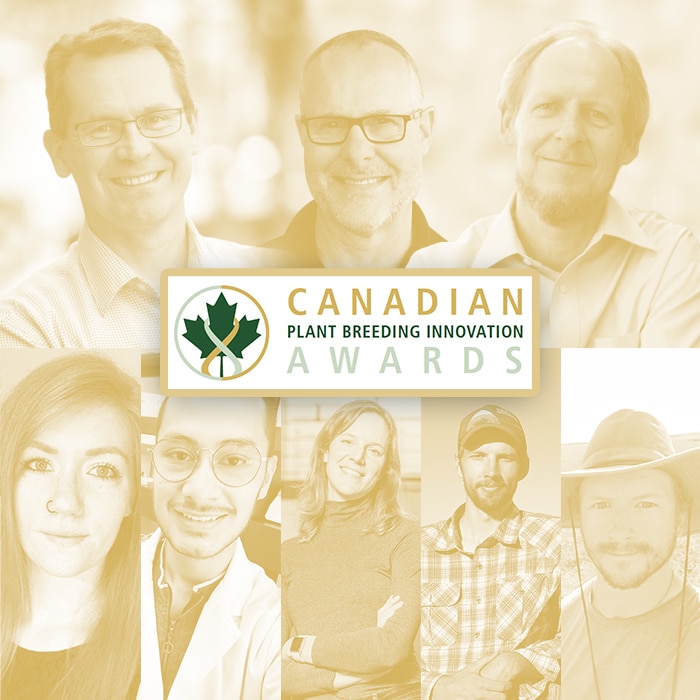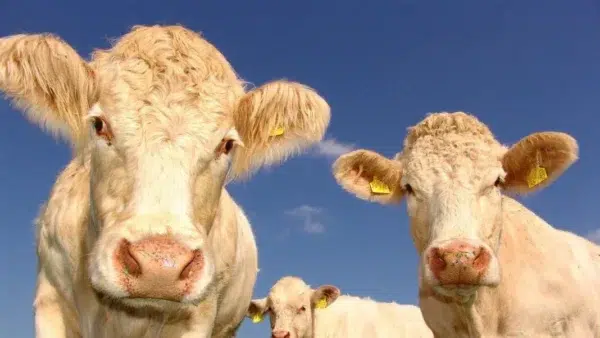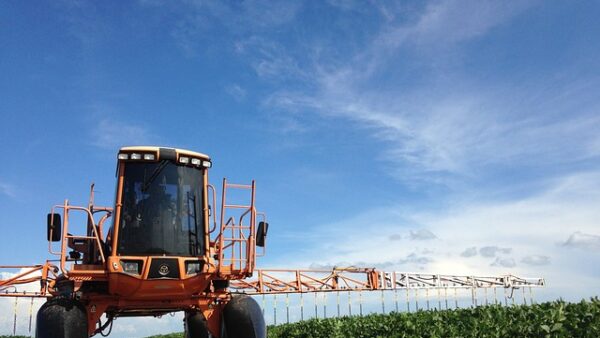Twelve sponsors help to recognize up-and-coming stars of the plant science world.
Each year, the Plant Breeding and Genetics award winner has the privilege of presenting scholarships to students enrolled at a masters or PhD level in plant breeding or plant genetics at the University of Guelph, McGill University, University of Alberta, University of Saskatchewan, or the University of Manitoba. This year, we welcome Laval University and the University of British Columbia onboard as well as the CPBI Scholarship program expands!
Our goal is to make this a long term part of the CPBI Awards and have a scholarship available each season to be provided to the university program chosen by the winner of the Plant Breeding & Genetics Award.
A variety of sponsors make the scholarships possible: Alberta Barley, Alberta Wheat, Canadian Seed Growers’ Association, FP Genetics, Germination, Nutrien Ag Solutions, Richardson, Sask Wheat, SeCan, Seeds Canada, Warburtons, and Western Grains Research Foundation.
Receiving a $1,500 scholarship this year are:
Isaac Peetoom Heida, University of British Columbia — Better Understanding Silicon
Isaac Peetoom Heida, 25, is a master’s student studying the role of plant genetics and soil silicon in soil-plant-pest- and pathogen interactions, primarily in wheat. The research will help shed light on the critically understudied role of silicon in agroecosystems. He is also working on his certification as a professional agrologist and is a member of several agricultural science societies. Heida’s past honours include an NSERC Undergraduate Student Research Award and the NSERC Canada Graduate Scholarship.
Emilee Storfie, University of Alberta — Helping Canola Fight Off Clubroot
Emilee Storfie, 28, is a PhD student studying the molecular mechanisms of the interaction between canola and Plasmodiophora brassicae, a pathogen producing clubroot disease that has a major effect on the $26.7 billion canola industry. Her research will help uncover how the clubroot pathogen infects canola plants and how canola can fight off the infection. Emilee’s work could help transform clubroot resistance breeding and management. Her past honours include the NSERC Canada Graduate Scholarship, the University of Alberta President’s Doctoral Prize of Distinction 2021, and the Trent University President’s Medal for Master of Science 2021.
Jesse Mutcheson, University of Manitoba — Boosting Pod Shatter Tolerance
Jesse Mutcheson, 28, is a second-year master’s student studying pod shatter tolerance in Brassica napus. During his undergraduate degree he was a summer research associate for DL Seeds, whose primary focus is to breed new canola hybrids for the North American market. In his four summers with DL Seeds, he was exposed to all aspects of the breeding program. His research could have a massive potential economic impact for Canadian farmers, as it includes multiple field trials over two years, genomics research and quantitative trait loci analyses. He is conducting all of this research on top of completing his full-time job with DL Seeds.
Geneviève Arsenault-Labrecque, Laval University — Levelling the Genomics Playing Field
In the course of her PhD project, Geneviève Arsenault-Labrecque developed a genomic approach to characterize the spectrum of variants (haplotypes) for all the avirulence genes associated with the most common resistance genes used commercially. Her work could revolutionize the tools exploited in plant breeding for developing soybean lines resistant to one of its most devastating pathogens, Phytophthora sojae. She developed a predictive tool that can be easily used by breeders so that they can introgress and recommend the proper resistance genes to growers. This technology is unique in the world and as a result, she patented it and has created a startup, AYOS Diagnostic, currently housed at Laval University. Her goal is to make the power of genomics accessible to breeders, growers and seed suppliers to facilitate sustainability and optimal yield.
Henry Alexander Cordoba Novoa, McGill University — Revealing the Secrets of Mutations in Self-Pollinated Crops
Henry Alexander Cordoba Novoa’s PhD research is focused on the study of agronomic and quality traits in common bean and the study of mutations that pose a threat in self-pollinated crop species. As little is known about the role of the accumulation of harmful mutations in breeding self-pollinated species, his research will accelerate the understanding of genome biology and will aid in the development of new crop varieties. Henry has been the recipient of multiple awards and scholarships, among them a Graduate Excellence Fellowship from the Department of Plant Science at McGill University, and two international exchange scholarships from the National University of Colombia and University of Angers in France.













